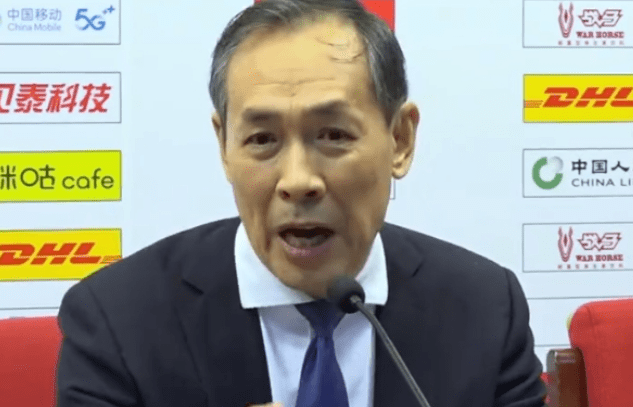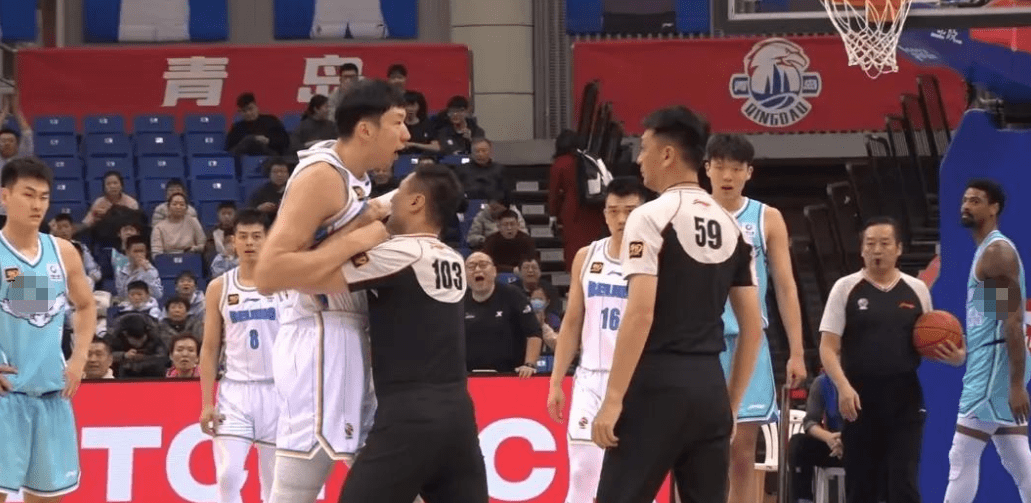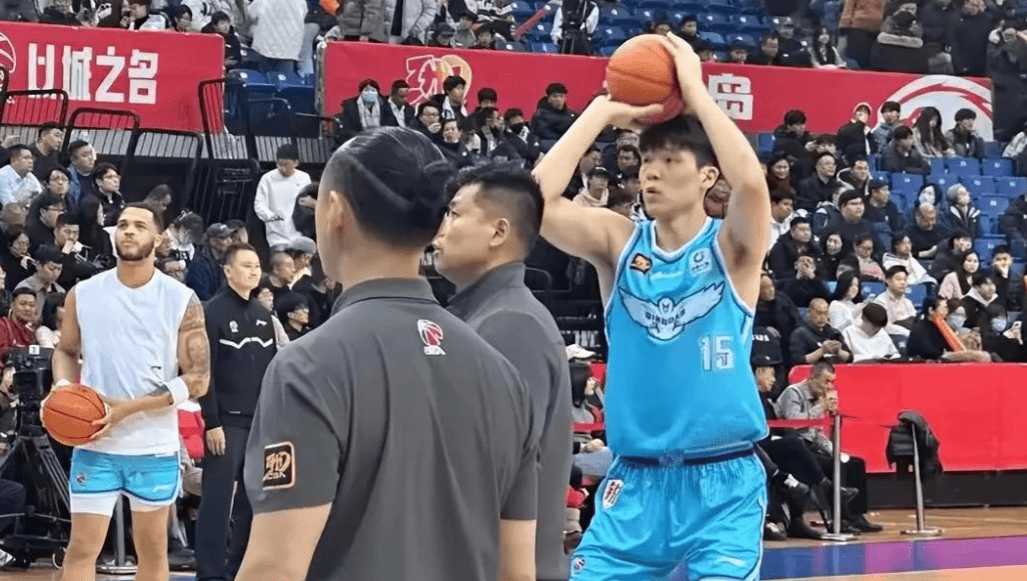Beijing Shougang has spent a fortune to bring back Zhou Qi, but who would have thought that his performance would be like a "microwave" - hot and cold at times, and even crashing at critical moments; a 20-year-old young player from Qingdao has exploded Beijing's interior line, running all over the court and grabbing the limelight; while after the game, coach Xu Limin once again served up his spiritual chicken soup. Does this approach really work? Who should be blamed for Shougang's difficulties?
Zhou Qi, who is Beijing Shougang's big investment, when he returned to the court, everyone's expectations were instantly raised.

Unfortunately, Zhou Qi's performance in this game was disappointing, scoring only 10 points, 3 rebounds, and 1 assist throughout the game. Such statistics are already perfunctory for an ordinary rotation player, let alone a star of his level.
Throughout the game, he seemed to have lost his soul, unable to grab rebounds, always half a beat late in defense, and even his sense of position was off. Honestly, this performance makes people wonder if Zhou Qi is really healthy now? Can he really carry the burden of Beijing Shougang?

But the problem is not just with the data. In the third quarter, he launched a "sudden attack" on the referee due to a call, resulting in his ejection from the game. Emotional outbursts are the most fatal weakness for a core player.
The referee's whistle may be controversial, but Zhou Qi's handling method undoubtedly undermined his own position. Even if he was angry inside, sitting down on the sidelines, spreading his hands and shaking his head would have been more effective, at least allowing him to stay on the court until the end. But he chose the worst way out, making himself a symbol of defeat.

In Zhou Qi's comeback, what he got wrong was not the technique, but the mentality. It can be understood that he was not confident enough after returning, but as an experienced veteran, using emotional outbursts to justify his slump makes people unsure whether to sympathize or get angry.
If the game made people's hearts break because of Zhou Qi, then Yang Hanshen, the 20-year-old interior player from Qingdao, could be described as "killing with kindness." The young man's performance throughout the game made people suspect that he might have stepped on "wheels of fire."

Not only was he both offensive and defensive, but he also directly exploded the front line and interior of Shougang in interior defense. Before others could react, he had already jumped to complete a one-handed dunk; when Beijing tried to strengthen their defense, he cleverly passed to an open teammate outside, and this young player immediately made Beijing's players lose heart as soon as he came on the court. In front of Yang Hanshen, Beijing Shougang's interior line was like paper.
However, Yang Hanshen also made mistakes in the game, fouling out in the final quarter, leaving Qingdao in a short-term passive situation. But surprisingly, Beijing Shougang did not seize this opportunity, failing to rise during the opponent's lineup gap and failing to regain rhythm on the defensive end.

It can only be said that Yang Hanshen's influence on the court was too thorough, giving his teammates confidence, and even though he left the court early, Qingdao still firmly controlled the situation.
Looking at the game, many people would mock and say "Zhou Qi was taught a lesson by the young," but it's not just Zhou Qi's problem, but the whole defense line of Beijing Shougang is too loose. It's not that Yang Hanshen performed so well individually, but the opponent really provided no substantial challenge.

Speaking of this game, it naturally cannot avoid the controversy caused by the referee's decision. When Zhou Qi left the court, the hearts of Beijing fans probably collapsed, and this is not the first time the CBA has been controversial because of a decision.
Many players have expressed after the game that the referee's decision-making standards are inconsistent, sometimes the ball belongs to you in a round, and sometimes the same action is called a foul on the other side. This kind of back-and-forth in decision-making not only makes the players feel frustrated but also directly destroys the game's watchability and fluidity.

Of course, it cannot be said that Zhou Qi's T is entirely the referee's problem, but this confrontation undoubtedly敲响了CBA裁判监督的警钟。这类争议表面上看是周琦“作死”,问题的本质,却是CBA作为一个联盟,在裁判管理、培养上长期落后的局面。
国际上,知名职业联赛对裁判都会有极为严格的规则划分和现场监督机制,而在CBA,贯穿全场的“裁判镜头”却似乎经常成为火上浇油的导火索。合理的判罚是比赛公平性的保障,这一点未来该联盟的调整方向,不能含糊。

每次北京首钢输球,总有一位固定的“常驻人员”跳入风口浪尖,那就是球队主教练许利民。
许指导赛后的发言一如既往带着“鸡汤气质”,在这场失利之后,他依旧以“看到球员们的斗志”“付出了自己全力”等为失利开解。
这种充满正能量的解读方式无疑在一定程度上安抚了焦躁的球队,但对于期待战绩的球迷和管理层来说,这样的总结或许缺乏说服力。尤其是当北京在过去五场比赛里以1胜4负的表现频繁翻车时,鸡汤显得有些隔靴搔痒。
回头看看这支北京队,投入大、名气足、引援强,但结果却与预期相差甚远。这场比赛更是将球队问题打得明明白白:核心球员表现时好时坏,整体战术体系老化且单一,精神鼓励明显成为了“许氏战术体系”的唯一亮点,但仅仅有鸡汤能成事吗?或许,许利民和他的团队该认真思考这个问题了。
比赛输了,周琦被骂上热搜,许利民的发言也被网友反复吐槽,但归根结底,这场比赛不仅暴露了首钢管理与战术上的问题,也隐隐映照出CBA许多深层次的困局。
从裁判争议到选手心理管理,从联盟规则统一到教练专业能力,CBA在改革道路上还有很长的路要走。
不过,问题的出现并不可怕,怕的是没人去解决。